Embedded System is fundamental to the electronics and information technology industries; it lies in the core of intelligent systems. With big data model pushes Artificial Intelligence (AI) into our households, the need for device-side AI explodes. Intelligent embedded systems in robotics, autonomous driver, and manufacturing are advancing rapidly, OSes in them are also playing an increasingly important role. A new generation of embedded OS is needed to cater to new developments in intelligent system technology and application frameworks.
The 6th Domestic Embedded Operating System Technology and Industry Forum (the 30th ESBF Forum) was successfully held in Beihang University Hangzhou Institute of Innovation. The forum featured 16 renowned experts and scholars, and attracted more than 120 attendees from the industry and education institutions. In-depth discussions took place around the topic – “Intelligent Embedded OS Research and Application for the AI Age”.
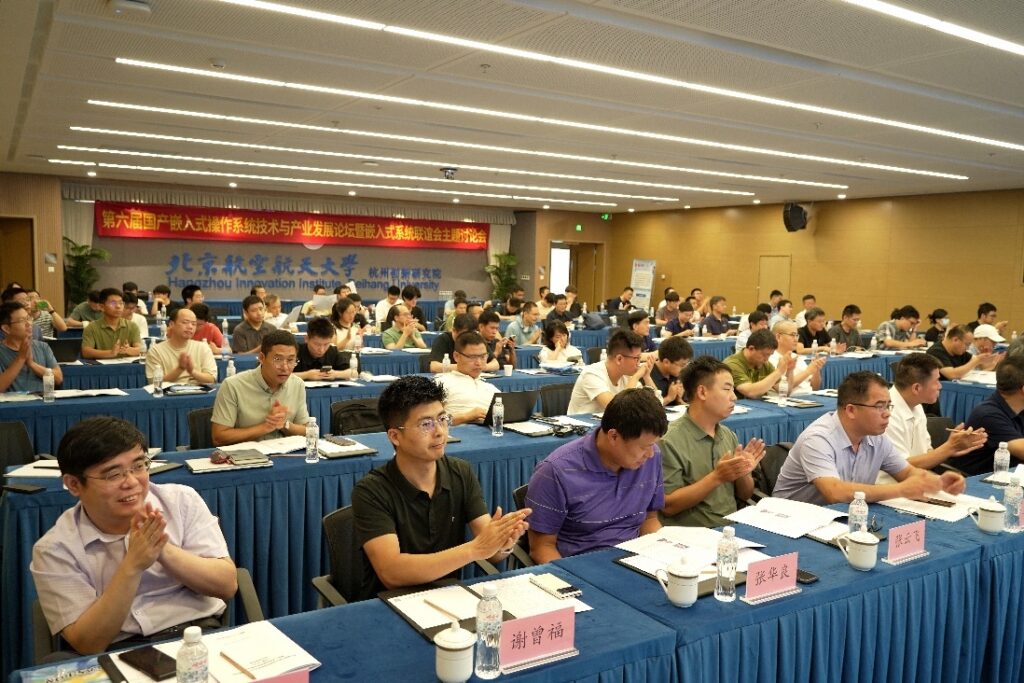
The forum was hosted by Beihang University School of Computer Science and School of Software, Chinese Academy of Sciences Institute of Software, and Ministry of Industry and Information Technology Internet of Things Standardization and Application Key Lab. The forum was organized by Beihang University Hangzhou Institute of Innovation and ESBF. The forum is one of the co-events of the RISC-V Summit China 2024.
The title of the morning main forum was “AI, IoT and Intelligent System”, hosted by Prof. Jianwei Niu of Beihang University School of Computer Science. Chunming Hu, chair of Beihang University School of Software, delivered an impassioned opening speech.
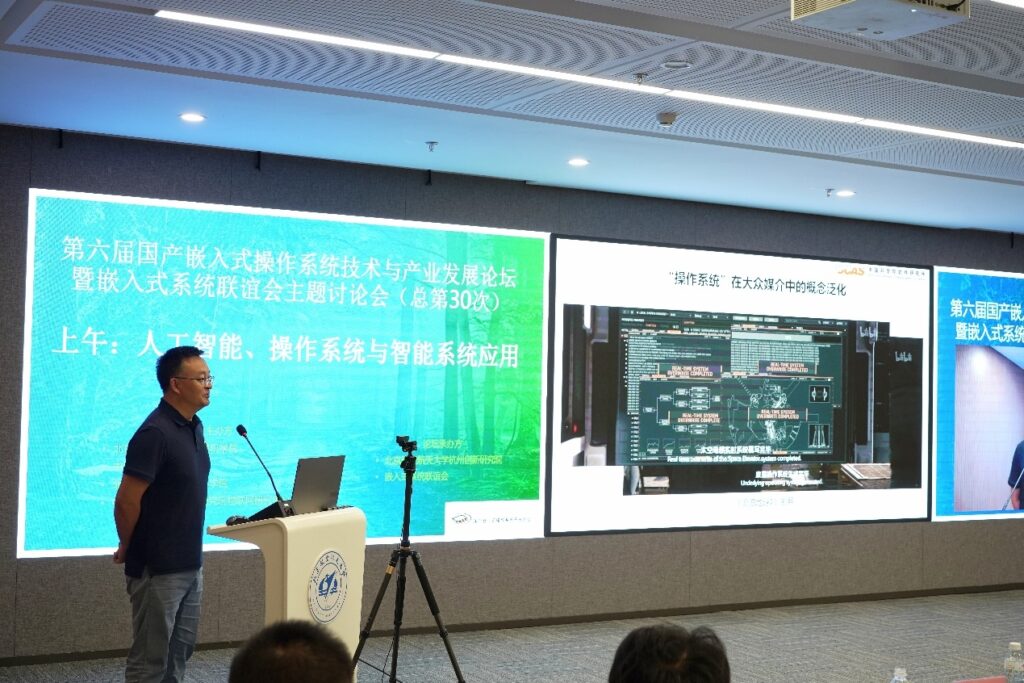
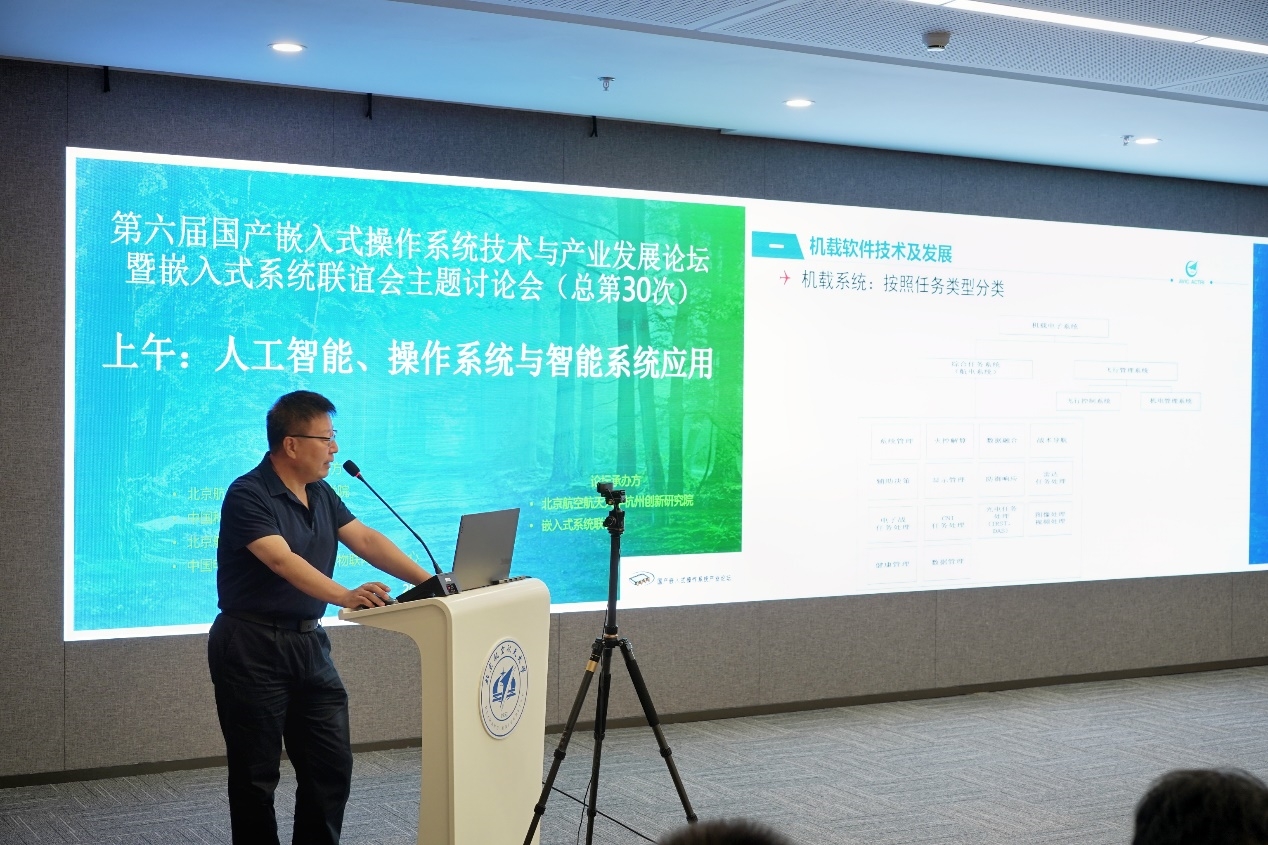
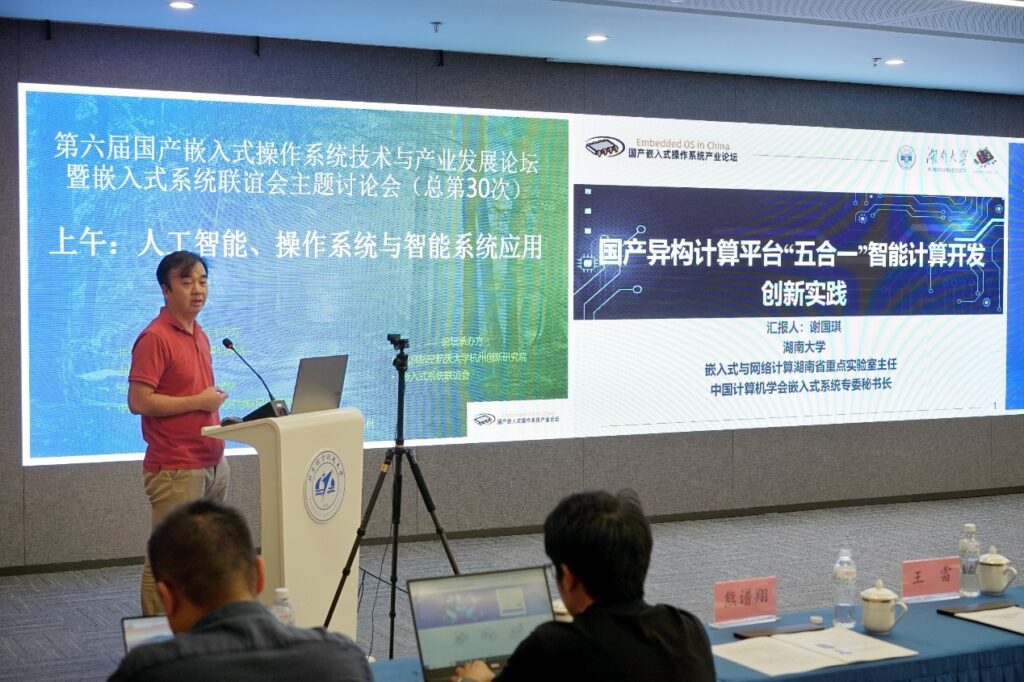
Speakers and attendees took a group photo after the morning agenda.
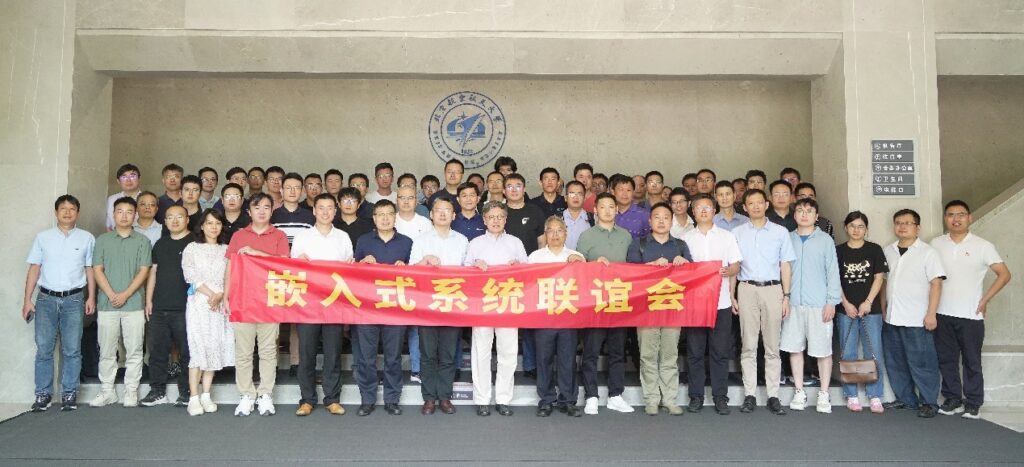
During the lunch break, attendees visited the Big Data Science Human-Machine Intelligence Research Center at the Hangzhou Institute of Innovation.
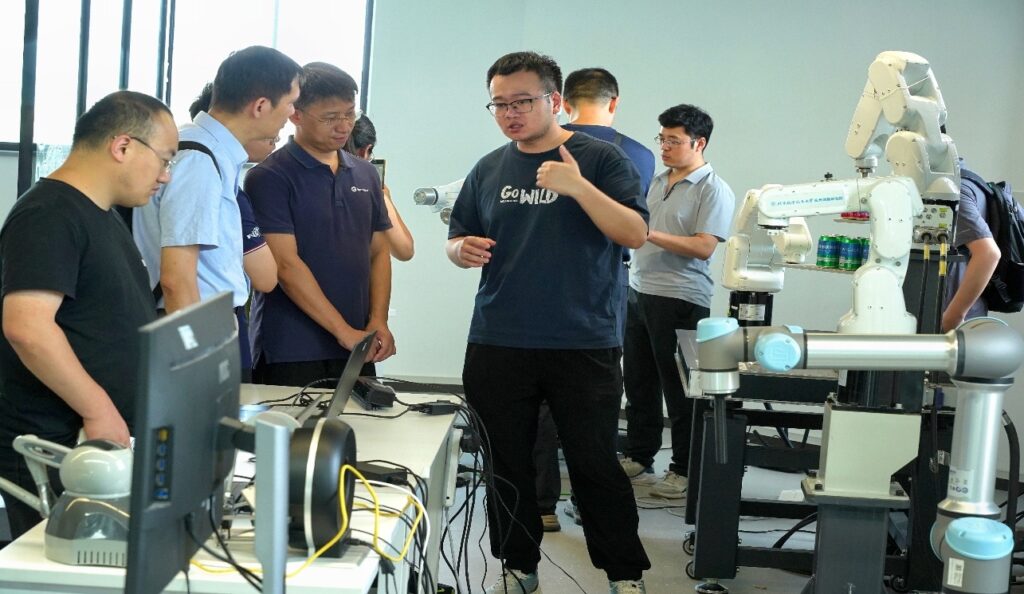
The afternoon agenda features expert discussion on “Intelligent Robotic OS Technology and Ecosystem Development”, hosted by Allan He, ESBF secretary in chief.
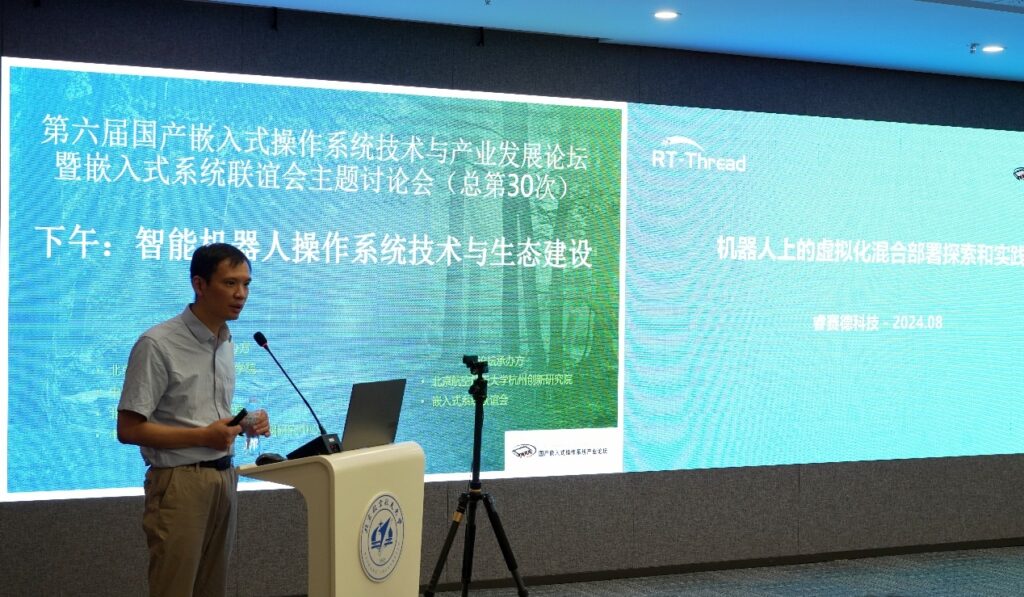
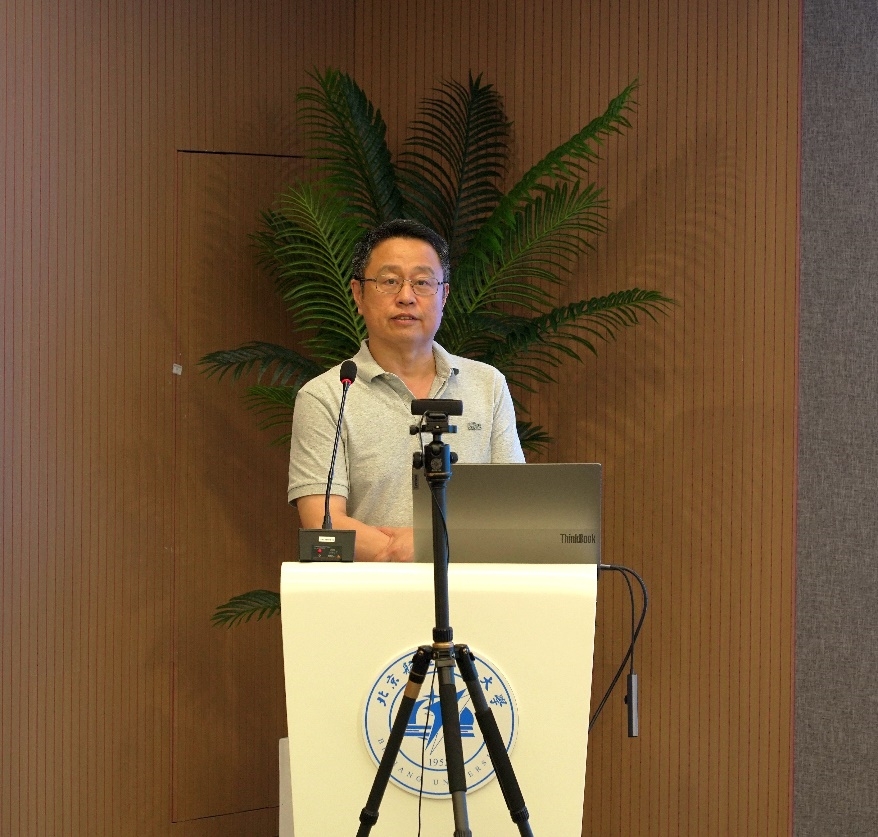
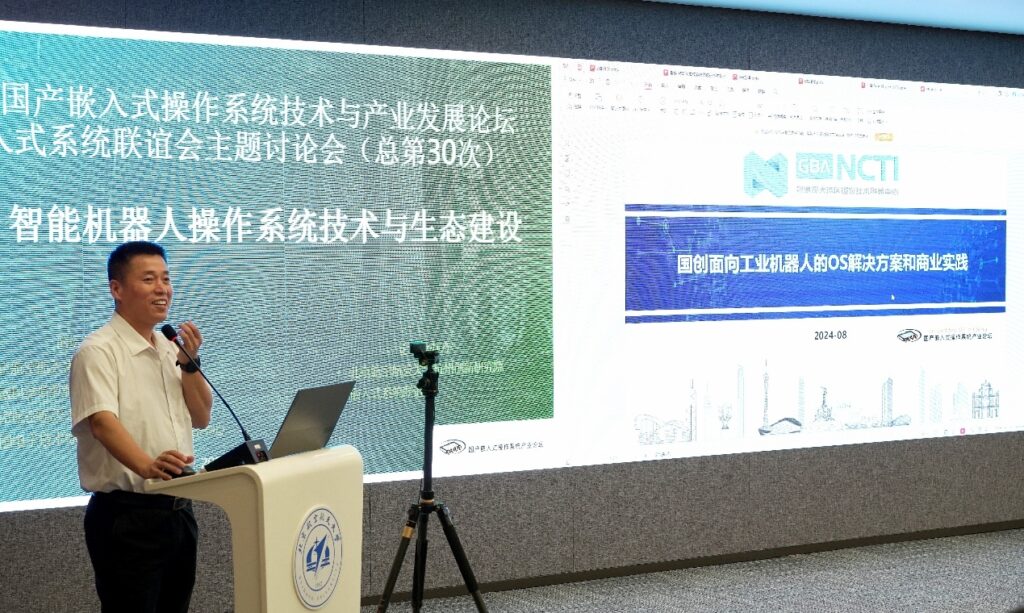
The topic of the panel discussion was “Future of Robotic OS”. The experts voiced their opinions on the status quo of domestic robotic OS, challenges facing robotic OS, and the ideal robotic OS for the future.
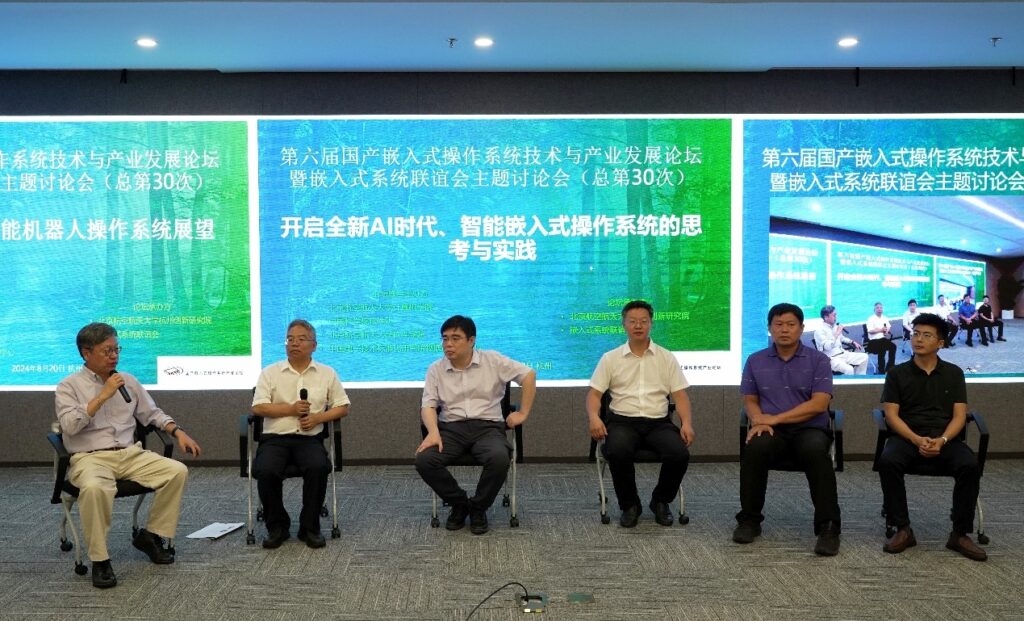
Presentation Downloads
Yanjun Wu, Vice Chair and Principle Engineer, Chinese Academy of Sciences Institute of Software: “OS developments in the era of AI big model”
Gen Lei, Engineer, China Electronics Standardization Institute: “Technology and standardization in the field of IoT OS”
Puxiang Xiong, CEO and Co-founder of Shanghai RT-Thread Electronic Technology Co., Ltd.: “Virtualized hybrid deployment on robots”
Prof. Lei Wang, Beihang University School of Computer Science: “Rust-Shyper: a highly-reliable and embedded hypervisor based on Rust”
Xiaocheng Li, Vice General Manager of Nanjing AcoInfo: “AcoInfo mission-critical software architecture empowers intelligence manufacturing”
Yunfei Zhang, Sr. R&D Engineer, Kylinsoft: “Technology and practice of embedded virtualization technology”
